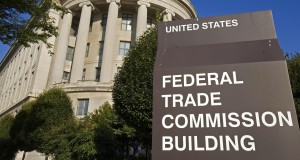There’s a famous old political adage — “where you stand is where sit” (also known as Miles’ Law) — meaning basically that government policy positions are dictated more by agency imperative and institutional memory than objective consideration of the public interest. A related concept is “regulatory capture,” where administrative agencies over time become defenders of the status quo and pursue objectives more for regulated firms as their constituency than consumers. Capture theory is closely related to the “rent-seeking” and “political failure” theories developed by the public choice school of economics. Or as Harold Demsetz put it well in his influential 1968 article, Why Regulate Utilities?, “in utility industries, regulation has often been sought because of the inconvenience of competition.”
That’s no longer limited to electricity companies and other public utilities these days. With the advent of rapid, low-cost entry into previously sheltered markets, powered by technology and the sharing economy, today’s incumbent industries are taking regulatory capture and politics as rent seeking to new heights. At DisCo we’ve written extensively about Uber, Lyft, Airbnb, Tesla and many other disruptive new start-ups that are facing a backlash from established industries (taxis, hotels and auto dealers, respectively) which use consumer protection as a Trojan Horse to disguise preventing or delaying competition on price, features and service. Politicians in locales as diverse as New York, New Jersey, San Antonio and Seattle (believe it or not!) have, wittingly it seems, gone along so far.

This is where what antitrust lawyers dub competition advocacy comes into play. Most antitrust policy in the U.S. is made in federal court as a result of merger, monopolization and horizontal collusion prosecutions launched by the Department of Justice (DOJ) and the Federal Trade Commission (FTC). But due to our federal-state system and a judge-made doctrine allowing states to exempt some markets from competition despite federal antitrust demands (government action, and private conduct to obtain such action, is challengeable in only relative narrow circumstances), much of the battle takes place in the legislative and regulatory arenas. Accordingly, competition advocacy is the primary tool available to antitrust enforcers in the U.S. to oppose state and local regulations favoring established firms over start-ups and parochially sheltering in-state companies from out-of-state competitors. The result is that for three decades the federal antitrust agencies have engaged in affirmative outreach to state and local legislators and regulators in the form of comments, letters and occasional lawsuits that seek to drive home the basic truths that competition outperforms regulation and the law should not pick winners and losers when it comes to evolving markets. (State attorneys general also undertake competition advocacy, principally through amicus briefs, as well.)
Continue reading Competition Advocacy Matters—Here’s Why and How
